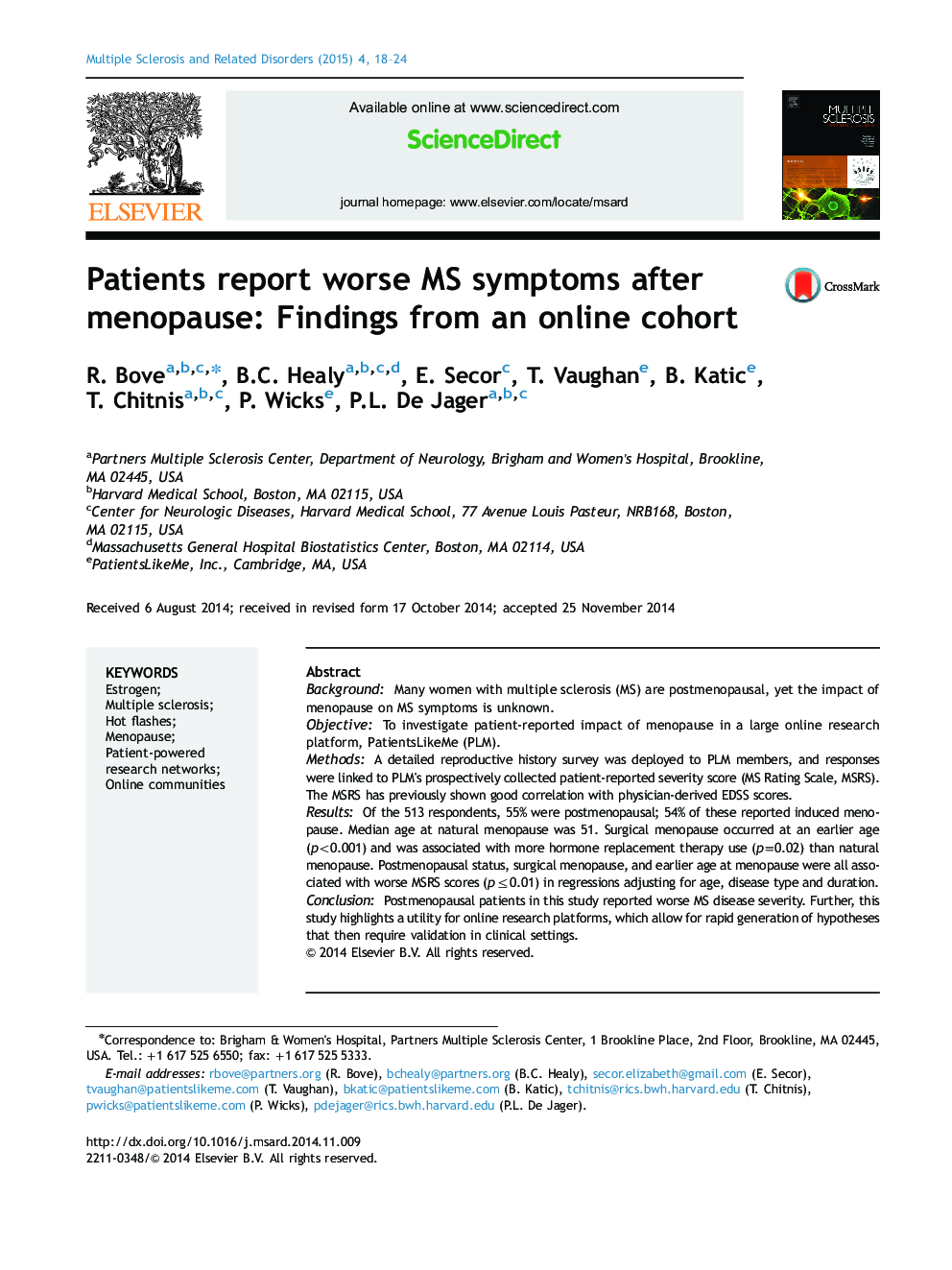| Article ID | Journal | Published Year | Pages | File Type |
|---|---|---|---|---|
| 2823852 | Multiple Sclerosis and Related Disorders | 2015 | 7 Pages |
•We leveraged a patient-powered research platform to rapidly test a research hypothesis.•Prospectively collected MS severity scores were more severe after menopause.•Women with early, surgical menopause had worse MS severity scores.•These findings require validation in clinical cohorts.
BackgroundMany women with multiple sclerosis (MS) are postmenopausal, yet the impact of menopause on MS symptoms is unknown.ObjectiveTo investigate patient-reported impact of menopause in a large online research platform, PatientsLikeMe (PLM).MethodsA detailed reproductive history survey was deployed to PLM members, and responses were linked to PLM׳s prospectively collected patient-reported severity score (MS Rating Scale, MSRS). The MSRS has previously shown good correlation with physician-derived EDSS scores.ResultsOf the 513 respondents, 55% were postmenopausal; 54% of these reported induced menopause. Median age at natural menopause was 51. Surgical menopause occurred at an earlier age (p<0.001) and was associated with more hormone replacement therapy use (p=0.02) than natural menopause. Postmenopausal status, surgical menopause, and earlier age at menopause were all associated with worse MSRS scores (p≤0.01) in regressions adjusting for age, disease type and duration.ConclusionPostmenopausal patients in this study reported worse MS disease severity. Further, this study highlights a utility for online research platforms, which allow for rapid generation of hypotheses that then require validation in clinical settings.
